
IPFS News Link • Books
Railroaded | E1: The Targeting & Caging of Ross Ulbricht (Audio Book)
• FreeRoss.Org/RailroadRAILROADED
The Targeting and Caging of Ross Ulbricht
Episode 1: Chapters 1-5
1st episode of a six-part series revealing behind-the-scenes information you've never heard before. Peek into the inner workings and conflicts in the Silk Road story and meet the people involved. It's an eye-opener! Narrated by Adrian Bisson.
This episode includes:
- Traveling the Silk Road (1:37)
- Passing the Torch (3:59)
- Targeting Karpeles (6:22)
- Fighting for Control (12:57)
- Going Rogue (17:50)
Episode 2 will be released on Oct 9!
Episode 2: Chapters 6-10 = Released on 10/09/18
Episode 3: Chapters 11-14 = Released on 10/16/18
Episode 4: Chapters 15-17 = Released on 10/23/18
Episode 5: Chapters 16-18 = Released on 10/30/18
Episode 6: Chapters 19-21 = Released on 11/06/18
___________________________
"Ross Ulbricht found himself at the intersection of three of the most highly prosecuted areas of law in the United States today: cyber, the drug war and financial regulation. Meaning the Silk Road angered a lot of people in power."
– Alex Winter, Director of Deep Web
___________________________
The following is based on public information sources, including court filings, transcripts, trial exhibits, affidavits, warrant applications, subpoenas, judicial rulings, investigation reports, press releases, sworn testimony and direct evidence. Some gaps remain due to government protective orders, redactions, sealed records, missing records the court cannot account for, dropped investigations, tampered evidence, communications and other data that remain encrypted, and the fact many of the parties involved have not testified.
Even so, every effort has been made to accurately present the available evidence surrounding the creation, investigation and shutdown of Silk Road, and the prosecution of Ross Ulbricht.
Episode 1 includes:
To be continued…
1. Traveling the Silk Road
The Silk Road anonymous market was an e-commerce website similar to Amazon or eBay but with an emphasis on user security and anonymity. It was launched in early February 2011 by Ross Ulbricht and employed two key pieces of technology. One was Tor, a global network of computers that routes internet traffic in a way that is nearly impossible to trace. Tor allowed users to connect to Silk Road without revealing their identity or location and without their internet providers knowing about it.[1-1] The other was the cryptocurrency Bitcoin, which allowed Silk Road users to anonymously pay or be paid for the goods and services listed on the site.[1-2]
Ross, at the time 26 years old, envisioned Silk Road as a "free-market economic experiment," an open platform driven by its user community.[1-3] He believed that "people should have the right to buy and sell whatever they wanted so long as they weren't hurting anyone else."[1-4] The guiding philosophy of the site was that it is no one else's business who you are or what you're buying and selling as long as the transaction is voluntary and no third party is harmed. Some things were therefore prohibited, including stolen items, child pornography, counterfeits, and generally anything used to harm or defraud others, but users were not told specifically what to list for sale.[1-5][1-6] Many legal items were sold, such as gold, books, art and clothing.[1-7] However, more and more vendors realized that the site's anonymity made it a safe platform for selling illegal drugs, the most common transactions being for personal use amounts of cannabis.[1-8]
 Ross Ulbricht (Right)
Ross Ulbricht (Right)
Ross envisioned Silk Road as a free-market economic experiment, an open platform driven by its user community.
A few months after its launch, gawker.com published an article about Silk Road, exposing it to a more general audience.[1-9] Then, in early June 2011, New York Senator Chuck Schumer, a member of the Senate Finance and Banking Committees,[1-10] called for a "crackdown" on Bitcoin, the immediate closure of Silk Road, and the apprehension of those behind it.[1-11] It became known as Schumer's case.
2. Passing the Torch
"Pay attention if you care about due process, Fourth Amendment protections against illegal searches, the limits of government surveillance and internet freedom."
– Nick Gillespie, Editor-in-Chief, Reason
With no programming experience or training, Ross's limited skills were soon inadequate to handle the complexities of Silk Road's technology, so he turned to a college friend, Richard Bates. Bates had studied computer science and was working for PayPal and eBay, companies that specialized in online payments and e-commerce, expertise suited for Silk Road.[2-1][2-2]
Initially, Ross asked Bates specific questions without revealing the nature of the project, but when Bates insisted, Ross told him about Silk Road. Bates offered him some help but distanced himself, citing concerns over the site being targeted by law enforcement.[2-3]
That stranger provided the needed help and eventually took control of the site entirely.
Richard Bates (Facebook) (See graphic on the right)
As time went on, Ross became more stressed and overwhelmed by the Silk Road project[2-4][2-5] and turned to an online anonymous stranger he met through the site. "I had discovered a big vulnerability in the way he had configured the main Bitcoin wallet that was being used to process all the deposits and withdrawals on the site," the stranger stated in a later interview.[2-6] "At first he ignored me, but I persisted and gained his trust by helping him secure the wallet. From there we became close friends working on Silk Road together."
That stranger provided the needed help and eventually took control of the site entirely. "It was a transition that took some time," he said, "I was in his corner from early on and eventually it made sense for me to take the reins." On November 11, 2011, Ross informed Bates of this transition.[2-7] As he told him in an online chat, "glad that's not my problem anymore."[2-8]
Then, on February 6, 2012, the new owner of Silk Road announced his screen name as "Dread Pirate Roberts" (DPR), a character from the film The Princess Bride, who passed his name and identity on to his successors.[2-9] By doing so, he became the focal point of the government's investigation into Silk Road.
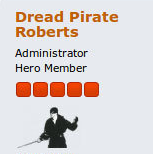
___________________________
3. Targeting Karpeles
___________________________
"This case is the birth of law as applied to our digital future. Watch it as a spectator at your peril."
– Scott H. Greenfield, Criminal Defense Attorney
___________________________
The investigation began when Homeland Security Investigations (HSI) agent Jared Der-Yeghiayan (pronounced der-yeh-gan) began to intercept unusual packages at Chicago O'Hare airport in June 2011.[3-1] The packages were unusual, not only because they contained drugs, but because they used sophisticated packaging methods to avoid detection, yet contained only personal use amounts.[3-2] Der-Yeghiayan has never revealed how he first learned about Silk Road nor how he linked these seizures to it, but he eventually made "approximately 50 or more" purchases from the site and tested the purity of the drugs he received.[3-3]
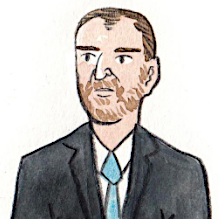
Jared Der-Yeghiayan
(illustration: Susie Cagle) (See Graphic Left)
Having discovered Silk Road, Der-Yeghiayan began digging further. He read all he could find online and discovered that "[it] first became known through an online user by the name of 'silkroad'…on [bitcointalk.org]."[3-4] The user signed his messages "Silk Road staff" and referenced a website called silkroadmarket.org. This website was not Silk Road itself, which was accessible only through Tor, but rather an ordinary website with information about how to use Tor and access Silk Road.[3-5] When he looked to see who the website was registered with, Der-Yeghiayan found the name and address of his first lead. However, the information was fake and did not show up in any public or law enforcement databases.[3-6] Determined, Der-Yeghiayan kept digging and found that the domain name server that the silkroadmarket.org URL was registered with was called XTA.net. He then found through a subpoena that XTA.net was registered to Mutum Sigillum, a company owned and operated by Mark Karpeles.[3-7]
A Frenchman living in Japan, Karpeles was the owner of Mt. Gox which, as the only major Bitcoin exchange market at the time, handled the vast majority of Bitcoin exchange transactions. As Bitcoin was the only payment method on Silk Road, this piqued Der-Yeghiayan's interest. Karpeles owned, operated, and administered "hundreds of websites" and was "a self-proclaimed computer hacker."[3-8] He was also an experienced computer programmer, specializing in Bitcoin and development of e-commerce websites, "[making him] well-suited to operating a…site such as the Silk Road."[3-9]
Der-Yeghiayan unearthed everything he could about Karpeles and his associates. He learned that Karpeles had acquired Mt. Gox around the time that Silk Road was started. Karpeles "had a strong motive to create a large underground marketplace where bitcoins would be in high demand. The Silk Road…was uniquely suited to his purpose…Because there are few legitimate vendors who accept bitcoins as payment, it is widely believed that the rise of Bitcoin has been driven in large part by their use on Silk Road."[3-10]
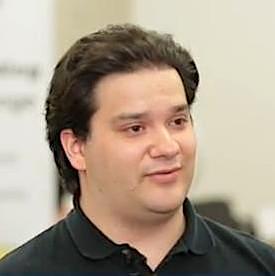
Mark Karpeles (See graphic Right)
(Reuters)
Der-Yeghiayan had identified multiple accounts belonging to the Silk Road operators that contained bitcoins worth millions of U.S. dollars.
Der-Yeghiayan also managed to turn a confidential informant against Karpeles, someone who had worked for him "within the past two years." This informant revealed that Karpeles owned and operated "bitcointalk.org—the same discussion forum where Silk Road was first publicized."[3-11] From visiting the forum Der-Yeghiayan knew "that [it] operate[d] on a software platform known as Simple Machines," and "that this same software platform [was] used to operate the discussion forums included on the Silk Road." He noted that "Simple Machine forum software was not widely used by forum administrators. Thus, the fact that the software [was] used to operate both the discussion forum on bitcointalk.org and…on Silk Road indicates that the forums were likely set up by the same administrator—that is, Karpeles."[3-12]
As Der-Yeghiayan connected the dots, he found another indication of what looked like Karpeles's involvement. One of Karpeles's websites, tuxtelecom.com, included "a tutorial…constructed using 'Mediawiki' and a specific version of this software, version 1.17.″[3-13] He also found that "silkroadmarket.org…and…Silk Road…also contain[ed] pages constructed using…the same version of the same software used to create the 'wiki' page on…tuxtelecom.com." He reviewed the Mediawiki website and found that "the Mediawiki software [was] regularly updated and…many versions have been released over time. Thus, the fact that the exact same version of the software was used to create the 'wiki' page on tuxtelecom, silkroadmarket.org and…Silk Road…indicates, again, that the same administrator—Karpeles—was responsible for creating all three of these sites."[3-14]
In fact, Karpeles had moved both silkroadmarket.org and tuxtelecom.com "repeatedly and simultaneously…to different IP addresses." This showed that "Karpeles controlled the [websites] and that he hosted them both at IP addresses he controlled."[3-15]
By April 2012, Der-Yeghiayan had "identified multiple…accounts belonging to the Silk Road operators" that contained bitcoins worth "millions of U.S. dollars" and linked them back to Karpeles and one of his associates, Ashley Barr.[3-16] He had found "strong ties between those controlling the bitcoin markets and those operating the Silk Road."[3-17] A Canadian with a Computer Science degree, Barr was Karpeles's "right hand man." He wrote like DPR and shared "the same viewpoints."[3-18] For Der-Yeghiayan it clicked: Karpeles was "the mastermind behind keeping [Silk Road] secure and operating" and Barr was the spokesman and "voice" of DPR.[3-19] "We're going right for the admin and his money," he wrote in an April 20th email.[3-20]

Ashley Barr (see graphic Right)
(Reddit)
On July 6, 2012, Der-Yeghiayan summarized his findings and submitted them in a report that could be seen by every HSI office in the country and their coordinating office known as "C3."[3-21]
___________________________
4. Fighting for Control
___________________________
"Ross's case is so important to our country's future and the future of Liberty itself. When somebody has been singled out the way Ross has been, to be made an example of, for a purely political case, that's a serious problem."
– Jeffrey Tucker, Editorial Director, American Institute for Economic Research
___________________________
Only a few days after Der-Yeghiayan submitted his report, Michael McFarland, lead Silk Road investigator at HSI Baltimore, submitted a draft proposal to HSI headquarters. In it, he told all offices that he was "the [point of contact] for all domestic Silk Road related investigations." Seeing that McFarland had developed virtually no information on Silk Road, Der-Yeghiayan "rewrote [the] draft to state that [he was]."[4-1] McFarland then went directly to C3 and "pitched [his] case as the only Silk Road investigation HSI has…and wanted their support." Looking into it, C3 found that Der-Yeghiayan "had a much longer and…diverse investigation on the Silk Road," and called Der-Yeghiayan to a meeting to brief them on it.[4-2]
At the meeting, Der-Yeghiayan told them that he had tracked down the Silk Road administrator, Mark Karpeles. Unbeknownst to Der-Yeghiayan, McFarland intended to co-opt his investigation into Karpeles and had informed C3 of his plans to "travel to [a] foreign country to interview [him]."[4-3]
In early August, Der-Yeghiayan wrote McFarland outlining the "large list of information" leading him to Karpeles and Barr as the ones behind Silk Road and DPR.[4-4] Because Der-Yeghiayan knew that pursuing Karpeles and Barr without tipping them off would be extremely difficult, he told McFarland "not to share the information with the rest of [his]…task force."[4-5] He "didn't want anybody reaching out to Karpeles" because he was "worried that if someone…did something, that Karpeles might find out." He warned McFarland that Karpeles "closely monitors…all of his websites," which "appeared to be fronts" that he "is actively tracking." And "if someone went on and wasn't sufficiently disguised, then [Karpeles] might recognize it as law enforcement," and it would tip him or someone he works with off to the investigation.[4-6]
A few weeks later, C3 called both offices to a meeting to settle the turf war between them. After each side presented its case, Debra Note, one of the managers overseeing the meeting, noted the "confusion and odd approach to the HSI Baltimore investigation." She asked Der-Yeghiayan if McFarland's investigation was "interfering with [his] case." He "expressed deep concern for [McFarland's] tactics and the lack of focus in [his] investigation."[4-7]
Unbeknownst to Der-Yeghiayan, McFarland intended to co-opt his investigation into Karpeles.

Steven Snyder (See graphic left)
(Twitter)
By the end of September 2012, a new agency—Baltimore's Drug Enforcement Agency (DEA)—had also gotten involved. Der-Yeghiayan pulled up their records and found that they "mirrored exactly" his. Upset, he asked McFarland if he had shared his investigation with the DEA and the rest of the Baltimore task force.[4-8] McFarland said he had, having disregarded Der-Yeghiayan's request not to. Der-Yeghiayan expressed "serious concern" but was brushed off.[4-9]
The following day, Steven Snyder, HSI Baltimore's Certified Undercover (CUC) program manager, told Der-Yeghiayan that McFarland was once again trying to monopolize the Silk Road investigation, this time by registering it in Baltimore's CUC program. Snyder refused to allow this "because it was clear to him that [McFarland] was copying [Der-Yeghiayan's] case, and there could only be one CUC program over the target website."[4-10] Yet, within a few weeks, Snyder reversed his decision and approved McFarland's as the sole investigation, even though McFarland had been dropped by C3 from the CUC program the previous month.[4-11]
At this point, McFarland began demanding all Der-Yeghiayan's information on Karpeles, saying they were "trying to work him." Der-Yeghiayan refused, telling McFarland "to not work [Karpeles] independent of HSI Chicago."[4-12] By October, Der-Yeghiayan discovered that McFarland had "shared all of HSI Chicago's information on Karpeles with members of [his] task force," including an "IRS agent, DEA agent and SS agent." Further, McFarland had "issued multiple subpoenas…and had actively worked [Karpeles] to include a type of surveillance," all without Der-Yeghiayan's knowledge.[4-13]
5. Going Rogue
___________________________
"This case isn't about Silk Road, it is about the future of Internet freedom, autonomy, and privacy."
– Carla Gericke, Candidate for New Hampshire Senate
___________________________
It was later discovered that McFarland had leaked investigation details to two Baltimore agents who, using theft, extortion and other means, had enriched themselves through their involvement in Silk Road. These agents "sought deliberately to undermine the integrity of the ongoing…investigation."[5-1] One was DEA agent Carl Mark Force. The other was Secret Service agent Shaun Bridges, who was on a "joint-duty assignment with the National Security Agency [NSA]" at the time.[5-2]
Seven months into his Silk Road investigation, Bridges "went rogue" as McFarland would later call it, and secretly seized $2 million from Karpeles's Wells Fargo account, which Karpeles was using in the operation of Mt. Gox.[5-3] Bridges did this to alert Karpeles that "the U.S. government had him on its radar"[5-4] and "the walls were closing in on them," so they could avoid prosecution.[5-5] It is still unknown what involvement Bridges had with Karpeles in the preceding months, but Bridges issued "this seizure warrant…because he didn't want a criminal case to proceed." If the U.S. government obtained Mt. Gox records, "they might see his…name on them" and discover his misdeeds. Not surprisingly, two days before he seized Karpeles's money, "he made sure to get his own money out."[5-6]
Neither Der-Yeghiayan nor McFarland knew of the seizure because Bridges, in order to execute 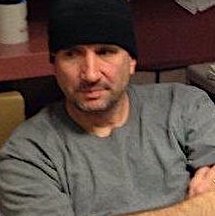 it, "went behind their back" to Richard Kay, an Assistant U.S. Attorney (AUSA) not associated with the Silk Road investigation.[5-7]
it, "went behind their back" to Richard Kay, an Assistant U.S. Attorney (AUSA) not associated with the Silk Road investigation.[5-7]
Carl Mark Force (See graphic Right)
(Forbes)
Force and Bridges also went after the bitcoins on Silk Road, but did so in secret so they could keep the money for themselves. According to Force, he pretended to be a drug smuggler for a cartel, gained DPR's confidence and asked him to coordinate a large sale with one of Silk Road's top cocaine vendors, a user going by the name "googleyed." Allegedly, DPR tasked Curtis Green, one of his staff members, with setting up the deal. When approached by Green, googleyed was suspicious of Force's offer and declined. Green agreed to accept delivery instead and gave Force his home address. There, a SWAT team arrested him once the package was delivered.[5-8][5-9]
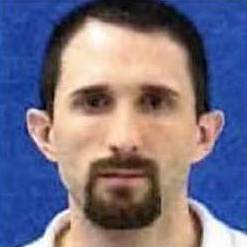
Shaun Bridges (See graphic Right)
(Forbes)
Once in custody, Green was interrogated by Force, Bridges and the rest of the Baltimore Silk Road task force and gave them his administrative login.[5-10] Bridges pressured Green to show him how to exploit Silk Road's system, including how to change passwords and take over accounts. Soon after gaining access to the site, Bridges left the interrogation. He used his new knowledge to hijack and empty the accounts of top Silk Road vendors and move the funds to Karpeles's Bitcoin exchange, Mt. Gox.[5-11]

Curtis Green (See graphic Right)
(Ars Technica)
However, Bridges did not move the bitcoins directly from Silk Road. He first moved the funds to Green's Silk Road administrative account. Bridges didn't simply transfer "21,000 bitcoins out to steal them, he transferred them to…Green's account…because he wanted to have a suspect. He wanted…Silk Road vendors and users to know 'Here's the person who stole my…bitcoins. It's Curtis Green'."[5-12]
As Green would later testify: "He set me up to take the fall." He wanted to "make sure that it was me that did it. So he was "very calculated. It was very well thought out, in my opinion."[5-13]
Bridges's plan worked. When it was discovered that the bitcoins were stolen, Green was "immediately accused." During the interrogation, Justin Herring, the Baltimore AUSA overseeing McFarland, screamed at Green, "Come on! We know you stole it! We know you did it!"
Green then got pulled aside by an agent, who coaxed him to confess: "Come on. They're the bad guys," he told him.
"I…I wish I could," Green kept saying. "It doesn't make sense for me to steal the money, the bitcoins. If I was that type of person, why would I steal it the night that I am in front of 15 agents? I…wouldn't I have done it the week before in the comfort of my home?" He couldn't believe they were accusing him. "It made no…sense to me whatsoever…it blew my mind."
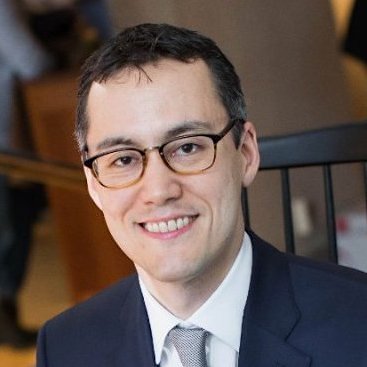
Justin Herring (See graphic Right)
(Linkedin)
His interrogators threatened to tear up Green's cooperation agreement and send him to prison. "We don't think you're telling the truth," Herring told him, "and since you lied to us, we're going to take that away." Green, a father and grandfather, "begged them for a lie detector test," but Force "kiboshed [that] every time."[5-14]
Bridges used his new knowledge to hijack and empty the accounts of top Silk Road vendors and move the funds to Karpeles's Bitcoin exchange, Mt. Gox.
According to the government, Force and Bridges also duped DPR into believing that Green was behind the theft. Allegedly, DPR then went to Force, still thinking he had cartel connections, and asked him to track Green down and retrieve the vendors' money. Force agreed and, with Green already in custody, played along and pretended to catch Green and kill him.[5-15]
It is unknown, however, if DPR was actually involved at all because the evidence for this entire incident came from Force himself after he and Bridges had infiltrated Silk Road. They had the ability to fabricate the whole thing. "When I saw the [murder-for-hire] transcripts," Green said in a later interview, they were "[in line with Force's] narrative, exactly what he portrayed. So was it there or did they put it there? I don't know."[5-16]
Force and Bridges went on to extort DPR on other occasions, using pieces of Der-Yeghiayan's investigation as leverage, along with threats of exposure and death. In one instance, they messaged DPR using the name "DeathFromAbove" and told him they had identified him and were going to take revenge for having Green killed. Eventually, they settled for extorting him.[5-17]
Another time, under the name "French Maid," the two corrupt agents tried to sell DPR "information concerning the government's investigation into the Silk Road." Force, out of habit, signed one of his messages with his first name "Carl." To cover this up, he later said his name was "Carla Sophia," a Silk Road user with "many girlfriends and boyfriends on the site."[5-18]
These and other schemes netted the pair at least 23,984 bitcoins, although it is unknown how many remain hidden.[5-19][5-20]
To be continued…
Next episode will include:
6. Thwarting Der-Yeghiayan
7. Being Wonderful
8. The Setup
9. Closing In
10. New York Takes Over
The information presented above is based solely on the public record and should not be attributed to Ross Ulbricht, Lyn Ulbricht, or anyone connected with freeross.org.
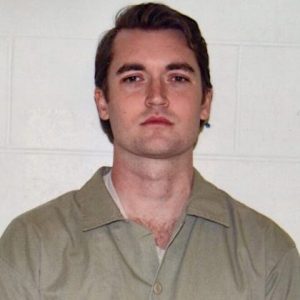 From the Ulbricht family:
From the Ulbricht family:
Ross was misused by the U.S. justice system, by those who took an oath to act with honor, integrity and support the Constitution. Instead, they won their trophy at the expense of a young man's life. This cannot stand. Now Ross needs mercy from the President.
Please help us free Ross!
Sign Ross's petition for clemency.

























